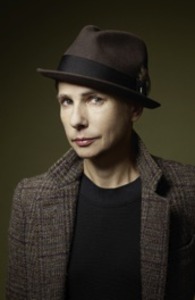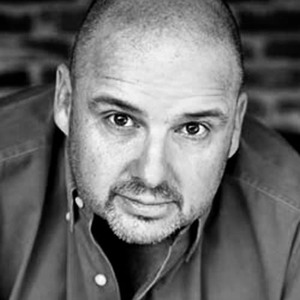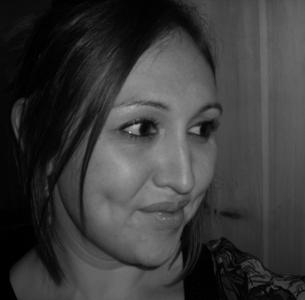A short time ago, I began pondering the idea of carrying out a series of interviews with writers, in order to explore what inspires them, how they approach their craft, and what hard lessons they have learned on their way to success. I hoped to learn from them personally and also to share with other writers, their advice and experiences.
I am pleased to say that my project is going well, and I already have a number of remarkable personalities lined up, with some great surprises to come in the following months. To kick things off, I am privileged to present:
In Conversation with | the exceptional and prize-winning author | Lionel Shriver

Lionel Shriver Biography
An American writer who lives in London, Lionel Shriver is the author of ten novels. She is best known for the New York Times bestsellers So Much for That (a finalist for the 2010 National Book Award and the Wellcome Trust Book Prize) and The Post-Birthday World (Entertainment Weekly’s Book of the Year and one of Time’s top ten for 2007), as well as the international bestseller We Need to Talk About Kevin. The 2005 Orange Prize winner, Kevin passed the signal million-copies-sold mark several years ago, and was adapted for an award-winning feature film by Lynne Ramsay in 2011. Both Kevin and So Much for That have been dramatized for BBC Radio 4. Shriver’s work has been translated into 28 languages. Currently a columnist for Standpoint, she is a widely published journalist who writes for the Guardian, The New York Times, London’s Sunday Times, the Financial Times, and the Wall Street Journal, among many other publications. Her eleventh novel, Big Brother, is published in spring of 2013.
Photograph Copyright HarperCollins 2012.
What was the first piece of writing you got paid for?
I had a poem accepted for an anthology while I was in high school. The anthology paid by the word, and the poem was short. They cut me a check for something like forty-six cents. I never cashed it. I have a feeling it’s still moulding in a scrapbook in the attic. So if I’m ever really destitute...
What is your work schedule like when you are writing?
Not to sound stroppy, but this is the kind of question that makes me impatient, just because I don’t think the answer is interesting. I’m constantly handling interruptions these days—pleas to, you know, give us a quote, contribute a signed book for charity, speak at a conference—so my schedule is no longer as simple and steady as it once was. (Failure is great for productivity.) But I get the job done eventually, and that’s all that matters.
You suffer from Raynaud’s disease—has that had any effect on your career or your writing habits?
Calling Reynaud’s a “disease” is a little grand, really. It just means my hands get very cold at ridiculously warm temperatures. It’s hardly a serious disability, and the sole influence it’s had on my career is by providing a small slice of material: I employed it in “The Post-Birthday World.” Otherwise, especially since I’m such a cheapskate on the heating (we try to get by with just lighting the woodstove evenings), I’ve had to learn to type in gloves.
If it can be said that, being a writer is the analysis of humanity, what are your thoughts on the inevitable curse of self-analysis?
When younger, I found myself fascinating. I could carry on for reams in my journals about what I thought made me tick. This is the biggest change for me in middle age. I bore myself senseless. I don’t waste much time on self-analysis. Ironically, the very point at which I lost interest in my own character was the same point at which the British media became unfathomably fascinated by it.
Would writers make better therapists than therapists?
Hey, at least novels are cheaper! I do use my own books to sort out whatever’s bugging me, whatever feels unresolved—sometimes emotionally, sometimes politically. But it’s literature’s use for a readership that’s more important. Reading about other people who have similar experiences as yours, who think the same off-colour thoughts, who don’t feel the way they’re supposed to feel and admit it—I do think that’s therapeutic.
For example, I got a huge readership reaction to the fact that, when a character in “So Much for That” gets cancer, most of her friends and more than one family member make themselves scarce. Apparently this is a big problem now: we shy from sick people. That kicked off several soul-searching discussions in my events. Some people had had their friends disappear on them when they got sick; others had done the disappearing. Everyone was relieved to learn that it wasn’t just their private little problem.
We have spoken about psychology so how about some philosophy—as a preacher’s daughter, tell me what happens when we die?
Hah! Believe it or not, I don’t think an interviewer has ever asked me that point-blank before.
Disclaimer: how the hell do I know, preacher’s kid or not? But to go out on a limb: I’m allergic to religion, and I don’t buy into traditional fairy stories about life after death. But I do take some marginal solace in physics. Energy is neither created nor destroyed. Therefore if—if, mind you—consciousness is real, a form of energy and not simply a neurological illusion, then it doesn’t disappear. But the vessel that contains it most certainly disappears, or rots anyway, and I don’t think our selves as we experience them remain discrete.
So try this: if we imagine the self as water, and the body as a glass, death is a spilled glass of water. The water dribbles down the table legs, seeps into the floor cracks, and evaporates into the air. Maybe some of its molecules will join the Atlantic Ocean or water a plant. But if you call out “Lionel!” after I’m gone, those molecules ain’t gonna turn around.
That obscure enough for you? For credibility, it sure beats meeting St Peter at some pearly gate.
How has living in a variety of cities, such as Nairobi, Bangkok, Belfast, London, and Brooklyn, affected the way that you write?
Simple: it means I’ve set scenes or whole books in Nairobi, Bangkok, Belfast, London, and Brooklyn.
Can you talk about the inspiration for your new novel ‘The New Republic’? Being from Northern Ireland, I’m intrigued to know how much your 12 years spent living in Belfast were an influence.
If I hadn’t lived in Belfast, I doubt I’d have written that novel. It was Belfast that got me so enraged that terrorism paid off. Who’s running the place now? Sinn Fein.
Was it always going to be a satirical novel?
Yes.
You have mentioned in previous interviews that, as a reader, you always have a pen at the ready—why?
In my teens, I started underlining and annotating as I read to imitate my father, who was always scowling into texts while furiously underscoring and scrawling in the margins. Later when I started doing so much book reviewing the habit proved fortuitous, since you have to cite quotations and remember what you thought as you read when putting together the review. It’s not a bad habit so long as you don’t regard the physical book as sacred (and it doesn’t belong to the library …). What some would regard as defacement is also a way of appropriating the book, of making it yours. And I don’t often reread books. So reviewing the bits I marked is a quick way of reliving the highlights.
Can you name some of the books that you do reread? (My own personal favourite is ‘A Christmas Carol’, by Charles Dickens).
In my teenage years I read "Catch-22" ritually around my birthday, but by the time I turned 18 I decided six times was enough.
Do you ever think you’ll write for television or film? For instance, would you be interested in writing an episode of ‘Mad Men’?
Oh, I love ‘Mad Men’! AND ‘Breaking Bad,’ ‘The Sopranos,’ ‘The Wire.’ I adored ‘Borgen’ and ‘The Bridge.’ I think some of the best writing for the screen now is for the small screen. But I wonder if these writers aren’t better than I am. I’m not sure I could produce episode after episode to schedule and with such consistent quality and constant invention—working within a set length, too. Those guys make me feel humble.
You are a judge for the 2013 Sunday Times EFG Short Story Award. Can you talk about your thoughts on the art of the short story and whether we might ever see a collection from you?
I’ve probably got a collection’s worth on my hard drive already, and I have entertained the idea of putting together a collection entirely themed around property. We’ll see. I don’t think the short story is the form in which I shine. I’m too long-winded, and I’m best at those extraneous bits in novels that a strict editor would eliminate. I love to digress, and you can’t afford much departure in short stories. Still, I’m a great admirer of writers who command that form, like William Trevor, and I do hope that there will be some gems in the Times submissions.
How do you see the publishing industry changing in the next few years?
Too much and too fast. The publishing industry is in a state of hysteria right now. The e-book thing is starting to consume so much of the market, with Amazon pushing for prices at which publishers can’t make any money. Everyone’s terrified that after the dust settles no one will be able to make a living either as a writer or an editor anymore. Beyond occupational self-interest, I do hope that the traditional model prevails in some form—that it is still possible to write and publish professionally—because publishers vet, and I don’t want, as a reader, to spend my latter years drowning in a slush pile.
What are some of the hard lessons you have learned during a career in writing?
The big surprise is that writing a novel never gets easy. I find this shocking. You write multiple books, and you expect to get better at it and more relaxed about the process. To become more confident. Uh-uh. I find I am getting less confident. When entertaining the idea for a new novel, I’m much more prone to question: why does the rest of the world need that? And to my own dismay I’m decreasingly self-impressed. I only decided my new novel is any good on the very final draft this summer.
What is your editing/redrafting process like?
I write the whole thing ploughing forward until I have a book. Then I go over and over it until I can stand it.
What is the greatest thing you have learned from an editor?
I had one editor who pushed me to concede that a book wasn’t working because it was told from two points of view, when it should really be written from one. I had to admit he was right, though that meant starting the whole book from scratch. The lesson was: yes, you can rewrite an entire manuscript. But, boy, I wouldn’t want to have to do that again.
What was the book?
A Perfectly Good Family.
What advice would you give to aspiring writers?
Depends on the kind of person you are. If you’re the sort to err on the side of self-satisfaction—to write something and then think, there, that didn’t come out so badly—I’d say, remember that especially in an age of computers all language is malleable: question every word. If you’re instead a tad neurotic, the worry-wart sort who keeps going over the same text and fiddling w it, I’d say, forward ho! Just get the thing down and then you can mess with it later. So many would-be novelists get stuck playing around with the early chapters, lose momentum, and never finish the book.
I'd like to say a massive thank-you to Lionel for our conversation and for being so candid in her answers. Lionel's new novel 'The New Republic' is out now!
Visit Lionel Shriver's Amazon Page
Want to comment on this article? Please register an account using the button at the top of this page.





